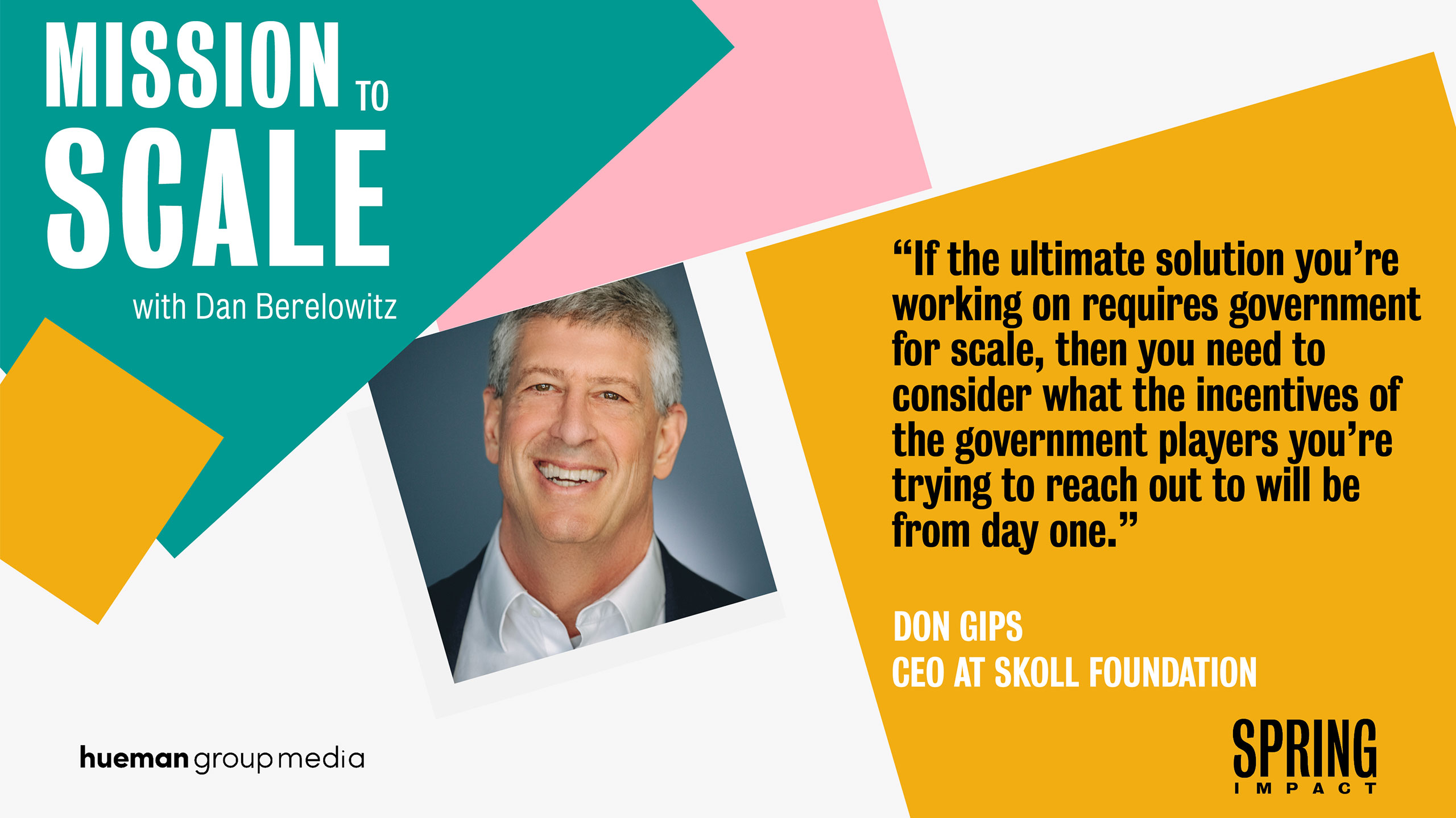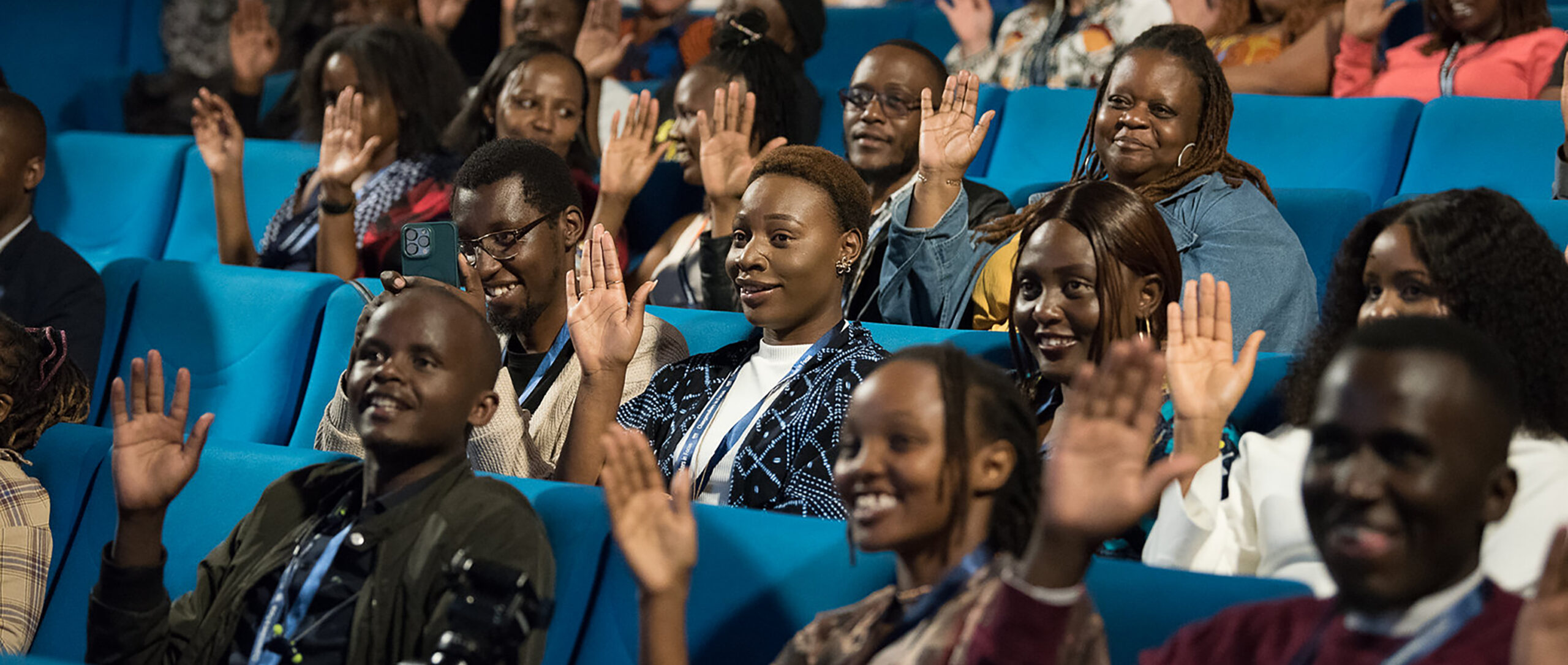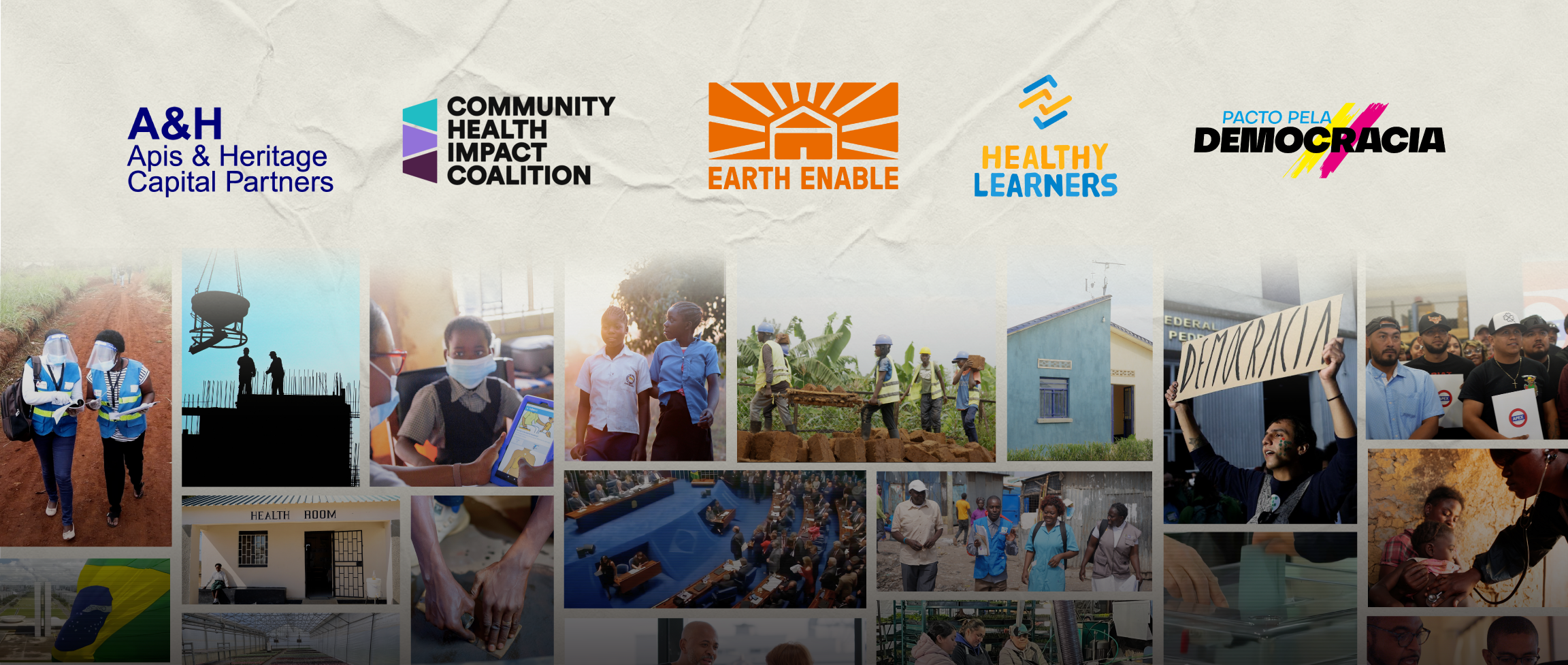Working with Governments Towards Scalable Solutions: A Conversation With Don Gips
What if scalable solutions ultimately need to be integrated within a government system? What should be the mindset of leaders as they explore government partnerships?
Don Gips, Skoll Foundation CEO, joined Spring Impact’s Mission to Scale podcast to share his lessons on working with governments towards scalable solutions. Don spoke with Mohamed Osman, who leads Spring Impact’s operations in the UK, about his expansive journey in social change, including lessons on timing and power when working with governments.
We’ve pulled out of our favorite bits below, but we hope you find the time to listen to the full 24 minutes.
On scaling impact
“I think if scaling impacts were easy, we’d all be much better at it than we are. But it really if you design from the beginning with an idea that how this, whatever your solution is, can be scaled and whether that’s through the government, whether that’s markets or whether that’s through philanthropy, having that vision from day one helps you build a model that works.”
On integrating into government systems
“Government systems—it’s such a broad term. Are you trying to change a law? That requires a very different approach to where you’re trying to get a solution that you have funded by an agency. Those are very different tactics. So you need to think through, in all cases, who’s going to be opposed to this? Who are you taking power from, because much of this often will be shifting power? Or is it a win-win solution where everybody is better off and then you just need to be able to demonstrate that and get access to the right decision makers in the government?
Remember that, particularly in government, betting on innovation is a risky thing to do. For a government official, it’s a lot easier to get in trouble for doing something wrong than take the risk to do it right. So how do you de-risk as much as possible so that government implementers have confidence in the solution in a way that allows them to take that risk?”
On active listening
“Whether in the private sector, government, or the nonprofit sector, trying to put yourself in the shoes of the people you’re working with, understanding what their challenges are or what their incentives are is critical.
I found that to be incredibly true as ambassador—to really listen to whoever the South African civil society leader, business leader, or government official was across the table from me. Listening to where they were coming from, trying to understand what the barriers they faced were, what the incentives are, I think that’s core to problem-solving.”
On the importance of well-being for social innovators and changemakers
“These are some of the most inspiring people I’ve ever worked with. It’s what gives me energy to keep doing this job—to hear their solutions, to see their visions for change. I think the only advice that I have is to make sure they take care of themselves on that journey—their own well-being—because these are not sprints. They’re marathons.”
Want more stories of transformational social change? Sign up for our monthly newsletter.



